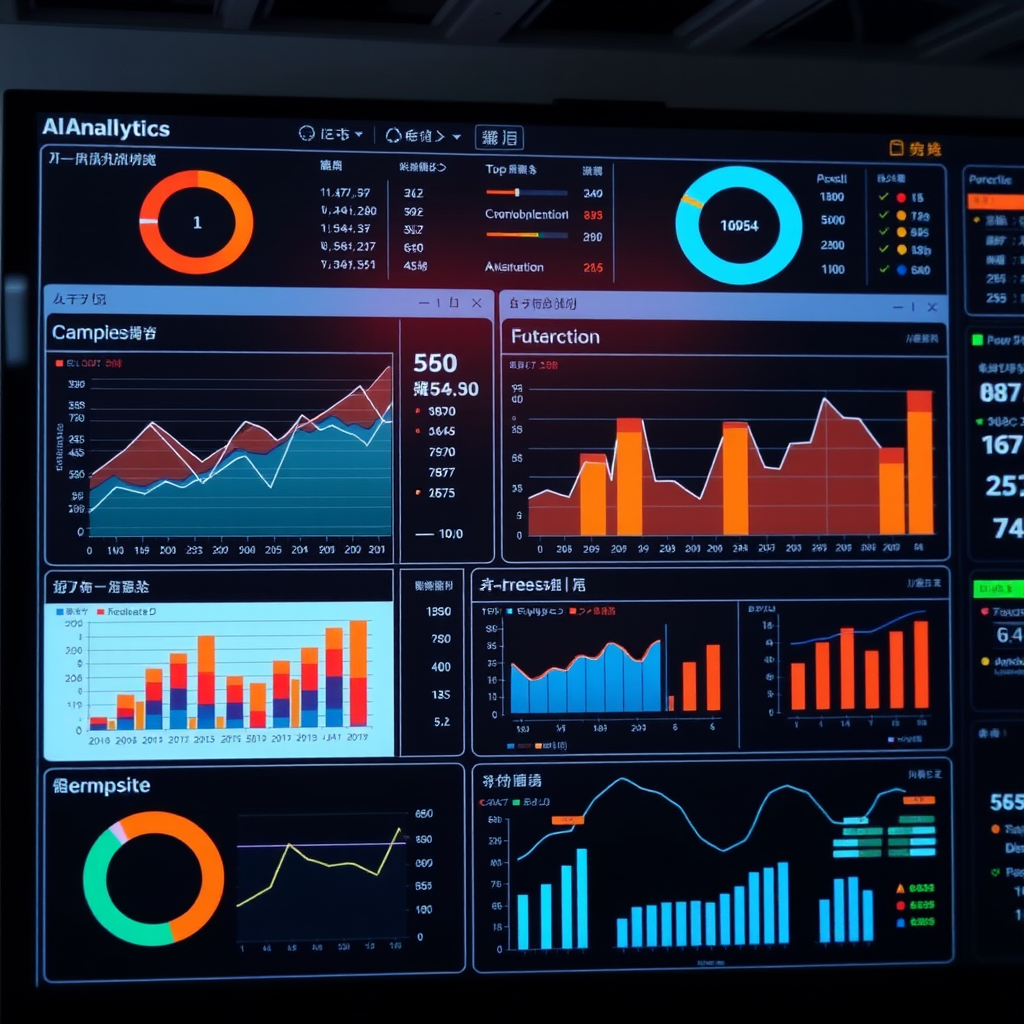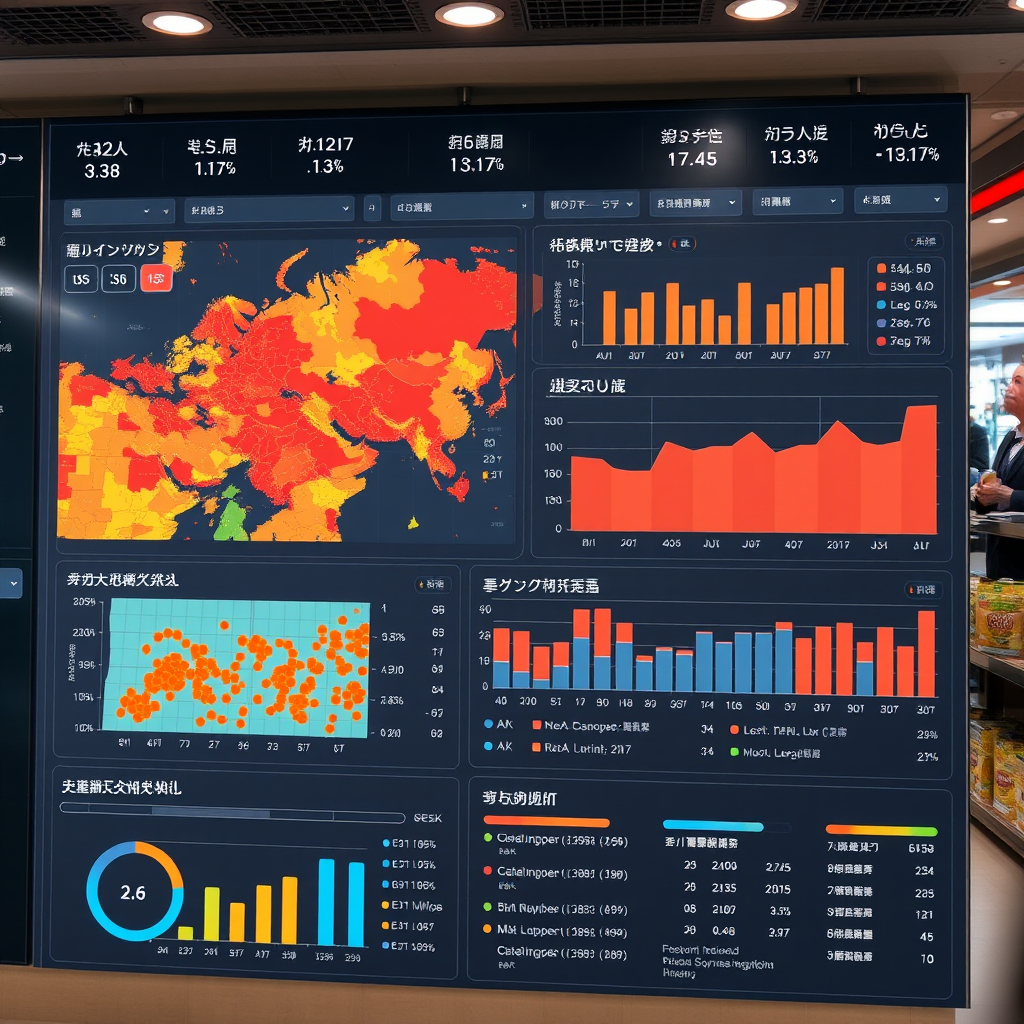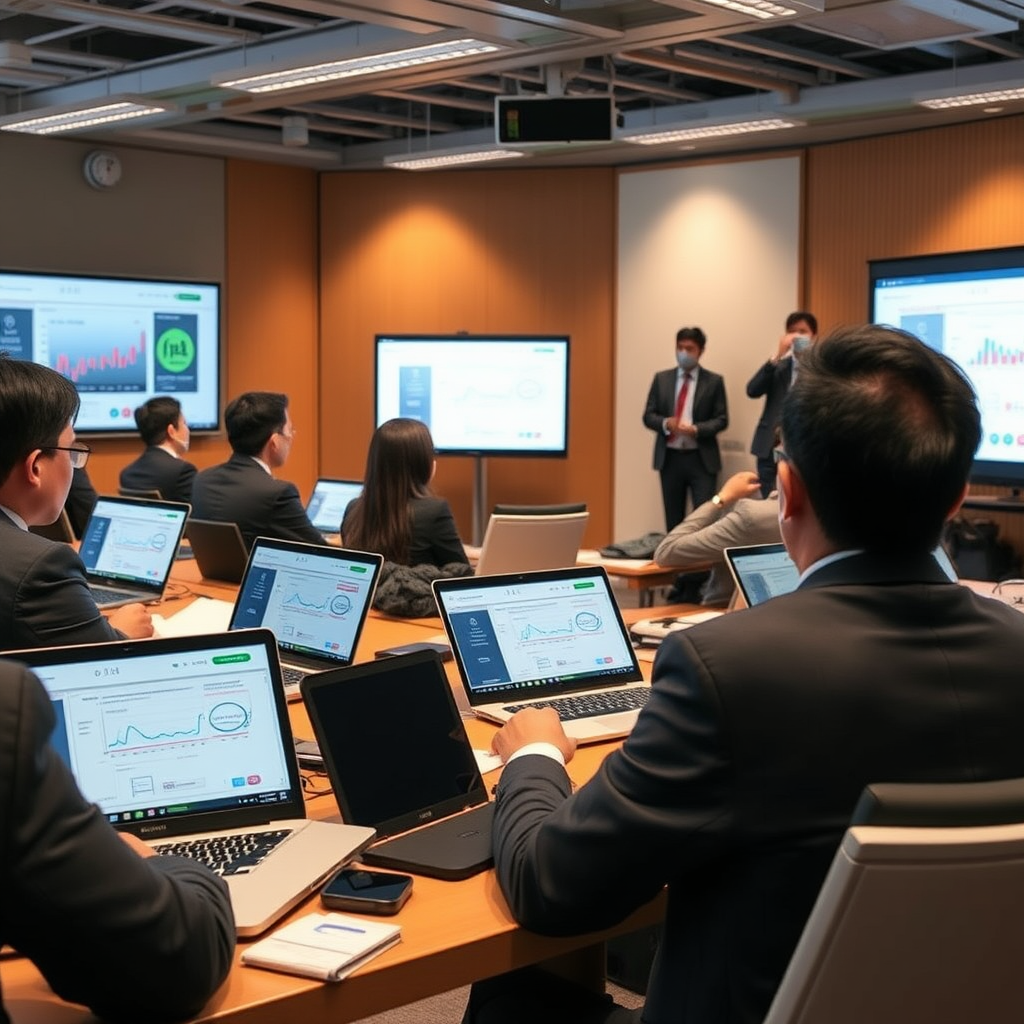Smart Analytics: How Japanese Businesses Use AI for Data-Driven Decision Making

Japanese enterprises are at the forefront of leveraging artificial intelligence for business intelligence, transforming raw data into actionable insights that drive strategic decision-making across industries.
In today's rapidly evolving business landscape, Japanese companies are embracing AI-powered analytics platforms to gain competitive advantages and optimize their operations. From Tokyo's financial districts to Osaka's manufacturing hubs, organizations are implementing sophisticated data analysis systems that represent the latest AI models in enterprise technology.
The Rise of AI Analytics in Japanese Business
Japanese businesses have historically been data-driven, but the integration of artificial intelligence has revolutionized how they process and interpret information. Major corporations like SoftBank, Rakuten, and Toyota are leading the charge in implementing advanced analytics solutions that provide real-time insights into market trends, customer behavior, and operational efficiency.

The adoption of AI news today shows that these platforms are becoming increasingly sophisticated, offering predictive capabilities that were previously impossible with traditional business intelligence tools. Companies are now able to forecast market changes, predict customer churn, and optimize supply chains with unprecedented accuracy.
Key AI Analytics Platforms Transforming Japanese Enterprises
Predictive Analytics Tools
Japanese businesses are leveraging advanced predictive analytics platforms that utilize machine learning algorithms to forecast future trends. These tools analyze historical data patterns, market conditions, and external factors to provide accurate predictions about sales performance, inventory needs, and customer demand.
Companies like Mitsubishi Electric and Panasonic have implemented predictive maintenance systems that use AI to anticipate equipment failures before they occur, reducing downtime and maintenance costs by up to 30%. These systems represent some of the latest AI models specifically designed for industrial applications.
Customer Behavior Analysis Systems
Understanding customer behavior has become crucial for Japanese retailers and service providers. AI-powered analytics platforms now process vast amounts of customer interaction data, purchase histories, and social media engagement to create detailed customer profiles and predict future buying patterns.

Retail giants like Uniqlo and 7-Eleven Japan utilize these systems to optimize product placement, personalize marketing campaigns, and improve customer satisfaction scores. The AI news today highlights how these implementations are setting new standards for customer experience in the retail sector.
Automated Reporting Solutions
One of the most significant advantages of AI analytics platforms is their ability to generate automated reports that provide actionable insights without manual intervention. Japanese companies are implementing systems that continuously monitor key performance indicators and automatically generate comprehensive reports for different stakeholders.
These automated reporting solutions utilize natural language processing to create human-readable summaries of complex data sets, making it easier for executives and managers to understand trends and make informed decisions quickly. The latest AI models in this space can even provide recommendations based on the analyzed data.
Real-Time Data Processing
Japanese financial institutions and trading companies have been particularly aggressive in adopting real-time analytics platforms. These systems process market data, transaction information, and economic indicators in real-time, enabling traders and analysts to make split-second decisions that can significantly impact profitability.

Industry-Specific Applications
Manufacturing and Quality Control
Japanese manufacturing companies have integrated AI analytics into their quality control processes, using computer vision and machine learning to detect defects and optimize production lines. These systems analyze thousands of data points per second, ensuring consistent product quality while reducing waste and improving efficiency.
Healthcare and Medical Research
The healthcare sector in Japan is utilizing AI analytics for patient care optimization, drug discovery, and medical research. Hospitals and research institutions are implementing platforms that analyze patient data, treatment outcomes, and medical imaging to improve diagnostic accuracy and treatment effectiveness.
Recent AI news today indicates that Japanese pharmaceutical companies are using these analytics platforms to accelerate drug development processes, reducing the time from research to market by several years.
Implementation Challenges and Solutions
While the benefits of AI analytics are clear, Japanese businesses face several challenges in implementation. Data privacy concerns, integration with legacy systems, and the need for skilled personnel are among the primary obstacles companies must overcome.
However, Japanese companies are addressing these challenges through strategic partnerships with technology providers, comprehensive employee training programs, and gradual implementation approaches that minimize disruption to existing operations.

Future Outlook and Trends
The future of AI analytics in Japanese business looks promising, with continued investment in research and development driving innovation. Companies are exploring advanced applications such as quantum computing integration, edge analytics, and autonomous decision-making systems.
As the latest AI models continue to evolve, Japanese businesses are positioning themselves to leverage these advancements for sustained competitive advantage. The integration of AI analytics with Internet of Things (IoT) devices and 5G networks is expected to create new opportunities for data collection and analysis.
Industry experts predict that by 2025, AI analytics will become standard practice across all major Japanese enterprises, fundamentally changing how businesses operate and compete in the global marketplace. The ongoing development of these technologies ensures that Japan will remain at the forefront of AI-driven business intelligence.
Conclusion
Japanese businesses are successfully leveraging AI analytics platforms to transform their decision-making processes and gain competitive advantages in their respective markets. From predictive analytics and customer behavior analysis to automated reporting and real-time data processing, these technologies are reshaping how companies operate and strategize.
As AI news today continues to highlight breakthrough developments in artificial intelligence, Japanese enterprises remain committed to adopting the latest AI models and analytics solutions. This commitment to innovation ensures that Japan will continue to lead in the application of AI for business intelligence and data-driven decision making.
The success stories emerging from Japanese companies serve as valuable case studies for organizations worldwide, demonstrating the transformative power of AI analytics when properly implemented and strategically utilized.